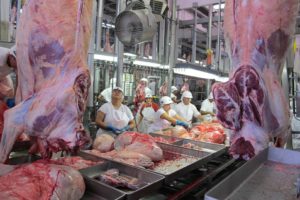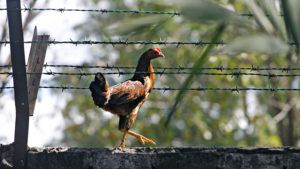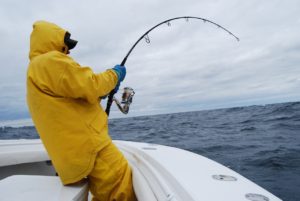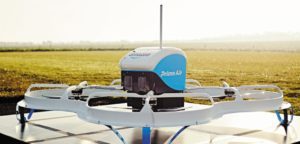 Thirty-three years ago today, five high school students in Shermer, IL spent a full Saturday in all-day detention for various offenses. The five students were labeled a brain, an athlete, a basket case, a princess, and a criminal. To pass the time, the students talked, argued, snuck out of the library to explore the school, and opened up about their fears and the pressures they face. Over the course of the nine hours they spent together, the group of strangers forged bonds and relationships that resulted in a close-knit friendship that no one expected. Of course, I’m talking about one of my all-time favorite movies – The Breakfast Club. I can’t believe the movie itself is over thirty years old and that each of these students would now be 50 years old (or so). They certainly don’t make movies like they used to.
Thirty-three years ago today, five high school students in Shermer, IL spent a full Saturday in all-day detention for various offenses. The five students were labeled a brain, an athlete, a basket case, a princess, and a criminal. To pass the time, the students talked, argued, snuck out of the library to explore the school, and opened up about their fears and the pressures they face. Over the course of the nine hours they spent together, the group of strangers forged bonds and relationships that resulted in a close-knit friendship that no one expected. Of course, I’m talking about one of my all-time favorite movies – The Breakfast Club. I can’t believe the movie itself is over thirty years old and that each of these students would now be 50 years old (or so). They certainly don’t make movies like they used to.
And now, on to the news.
- Ebay plans to guarantee three-day delivery
- Chocolate companies look to end deforestation
- Brazil police launch anticorruption probe of meatpacking industry
- Bird flu outbreak in Asia threatens supply
- Whole Foods unveils new tuna sourcing guidelines
- Amazon files patent for “superdrone” delivery
 EBay is taking a stand to become a challenger to Amazon and Walmart in the online commerce marketplace. The company announced that starting this summer, the platform will guarantee three-day delivery in the US on more than 20 million items. Additionally, millions of these items will qualify for free shipping. Customers will have the ability to filter their search by delivery timeframes, similar to Amazon Prime members filtering by Prime-eligible items. This comes at a time when e-commerce retailers are pushing to gain marketshare. Walmart is offering free two-day shipping when customers spend $35, and Target has dropped its spending threshold to $25 for free shipping. EBay hopes that the summer launch of its guaranteed shipping program will bring an influx of sales.
EBay is taking a stand to become a challenger to Amazon and Walmart in the online commerce marketplace. The company announced that starting this summer, the platform will guarantee three-day delivery in the US on more than 20 million items. Additionally, millions of these items will qualify for free shipping. Customers will have the ability to filter their search by delivery timeframes, similar to Amazon Prime members filtering by Prime-eligible items. This comes at a time when e-commerce retailers are pushing to gain marketshare. Walmart is offering free two-day shipping when customers spend $35, and Target has dropped its spending threshold to $25 for free shipping. EBay hopes that the summer launch of its guaranteed shipping program will bring an influx of sales.
 Major players in the world’s chocolate industry have joined forces to stop deforestation in major cocoa producing countries, namely Côte d’Ivoire and Ghana. Nestlé, Mars, Mondelez, Cargill, and Olam have signed an agreement in which they acknowledge that their cocoa supply chains and procurement practices have contributed to the destruction of forests. The agreement indicates that these companies will work together to develop a solution to the problem, and present their plan to stop deforestation at the United Nations Framework Convention on Climate Change conference at Bonn, Germany, in November. These companies join a number of high profile companies that have pledged to end deforestation, including McDonald’s and VF Corp.
Major players in the world’s chocolate industry have joined forces to stop deforestation in major cocoa producing countries, namely Côte d’Ivoire and Ghana. Nestlé, Mars, Mondelez, Cargill, and Olam have signed an agreement in which they acknowledge that their cocoa supply chains and procurement practices have contributed to the destruction of forests. The agreement indicates that these companies will work together to develop a solution to the problem, and present their plan to stop deforestation at the United Nations Framework Convention on Climate Change conference at Bonn, Germany, in November. These companies join a number of high profile companies that have pledged to end deforestation, including McDonald’s and VF Corp.
 Brazilian authorities are investigating meatpacking companies in the country regarding the use of bribes to get product through sanitation inspections. There is a lot of contradicting information about the scandal, but one thing is certain, some of the world’s largest meatpacking companies bribed sanitary inspectors to ensure they could get their meat out to the market. Some allegations include these companies bribing sanitary inspectors to get rotten or tainted meat through the inspection process. Other allegations imply that these companies used the bribes to ensure their products got out to the market faster, not because of tainted meat. Either way, several countries have banned meat imports from Brazil, and the country has shut down three plants and suspended the export licenses for 21 meat packing plants.
Brazilian authorities are investigating meatpacking companies in the country regarding the use of bribes to get product through sanitation inspections. There is a lot of contradicting information about the scandal, but one thing is certain, some of the world’s largest meatpacking companies bribed sanitary inspectors to ensure they could get their meat out to the market. Some allegations include these companies bribing sanitary inspectors to get rotten or tainted meat through the inspection process. Other allegations imply that these companies used the bribes to ensure their products got out to the market faster, not because of tainted meat. Either way, several countries have banned meat imports from Brazil, and the country has shut down three plants and suspended the export licenses for 21 meat packing plants.
 Speaking of tainted meat, the avian influenza outbreak in Asia is continuing to expand. A few weeks ago, I wrote about how the bird flu has struck the South Korean market, which resulted in authorities exterminating about 17 percent of the national flock of chickens and 28 percent of ducks. Well, it is spreading across Japan and China now. This latest outbreak may be the worst in seven years, as the human death toll has risen to 140 people in China. As a precaution, chickens are being culled across all three of these countries, which leaves a shortage of supply, resulting in more imports.
Speaking of tainted meat, the avian influenza outbreak in Asia is continuing to expand. A few weeks ago, I wrote about how the bird flu has struck the South Korean market, which resulted in authorities exterminating about 17 percent of the national flock of chickens and 28 percent of ducks. Well, it is spreading across Japan and China now. This latest outbreak may be the worst in seven years, as the human death toll has risen to 140 people in China. As a precaution, chickens are being culled across all three of these countries, which leaves a shortage of supply, resulting in more imports.
 Whole Foods has always been at the forefront of responsible sourcing, or at the very least, of providing options for responsibly sourced items. For example, when you are in one of their stores looking to buy meat, you can look at their 5-Step Animal Welfare Rating Standards, which outlines how natural their life was, and how the farms treat the animals. Whole Foods has now unveiled new guidelines for how it sources tuna, for both canned and fresh varieties. Under the new guidelines, canned tuna must come from fisheries that that use pole-and-line, trolling, and handline methods, which catch fish one-by-one. Suppliers must also use Trace Register, software that tracks tuna from “vessel to can” to monitor for unauthorized fishing.
Whole Foods has always been at the forefront of responsible sourcing, or at the very least, of providing options for responsibly sourced items. For example, when you are in one of their stores looking to buy meat, you can look at their 5-Step Animal Welfare Rating Standards, which outlines how natural their life was, and how the farms treat the animals. Whole Foods has now unveiled new guidelines for how it sources tuna, for both canned and fresh varieties. Under the new guidelines, canned tuna must come from fisheries that that use pole-and-line, trolling, and handline methods, which catch fish one-by-one. Suppliers must also use Trace Register, software that tracks tuna from “vessel to can” to monitor for unauthorized fishing.
 And finally, Amazon is continuing to push the bounds of drone deliveries. I’ve written here extensively about the company’s research efforts to make drone deliveries a reality. Recently, the company won a patent for a floating fulfillment center that will deploy drones to deliver parcels. In its most recent patent filing, Amazon plans to build a “collective aerial vehicle.” Essentially, it consists of multiple smaller drones that stick together to form a super drone (think Voltron). The super drone could either carry larger packages longer distances, or carry multiple packages with each drone dropping off to make its individual delivery. Much like a lot of patents Amazon files, who knows if this will ever see the light of day, but it is certainly intriguing nonetheless.
And finally, Amazon is continuing to push the bounds of drone deliveries. I’ve written here extensively about the company’s research efforts to make drone deliveries a reality. Recently, the company won a patent for a floating fulfillment center that will deploy drones to deliver parcels. In its most recent patent filing, Amazon plans to build a “collective aerial vehicle.” Essentially, it consists of multiple smaller drones that stick together to form a super drone (think Voltron). The super drone could either carry larger packages longer distances, or carry multiple packages with each drone dropping off to make its individual delivery. Much like a lot of patents Amazon files, who knows if this will ever see the light of day, but it is certainly intriguing nonetheless.
That’s all for this week. Enjoy the weekend, and the song of the week, the Simple Minds Don’t You Forget About Me.


















Great site with great articles.
This is the great experience to read this blog. I am impressed with those all things which you mentioned in your blog perfectly because any one can write who have some knowledge about how to write a blog. But this is the art which you shown in this article which any one can’t do.